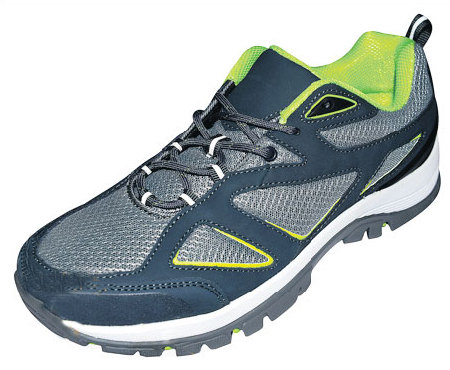Smart about health, and ready to wear
Two functional fashion items have been launched in China recently, with a focus on family.
Zaina Smart Shoes, with an internal GPS system, are designed for senior citizens, while B-Watch, which looks like a bracelet, is created for pregnant women to monitor their physiology.
Zaina, which means "where" in Chinese, aptly describes the product, which is able to locate the wearer's position within 3 meters.
It is a brainchild of trendy fashion designers from the Beijing Institute of Fashion Technology and geeky program writers from Xiamen-based high-tech company Kingtop. Both organizations started the project in mid-2012.
Xu Jingxian, vice-president of Kingtop, who noticed senior people getting lost, initiated the idea.
"They need a GPS product which is handy, and not easily left behind. So, we had this idea of inserting the GPS system into a pair of shoes. It will help their families and caretakers to pinpoint their location when they go missing," she says.
The chip in the shoes sends the specific locations of the wearers to their family members. It updates the maps automatically and also gives full protection of the person's privacy. Resembling a pair of running shoes, the shoes are comfortable, waterproof and pressure-resistant.
B-Watch, developed by China's childcare portal Babytree.com, is the first smart wearable device designed specially for pregnant women in the Chinese mainland market.
There are watches in the global market, including Sony's Smart Watch, Samsung's Galaxy Gear, and Adidas' miCoach, which double-function as sports and health devices, but not specifically targeted at pregnant women.
B-Watch records fetal movements and contractions of the wearer's uterus. It can also generate graphs to predict the mother's weight increases and forecast and update the baby's weight and size.
According to Chen Jun, senior product director of Babytree.com, the research team first explored the idea in September. It took them two months to complete it.
"We have been thinking about launching a wearable device for pregnant women for a long time. We also have noticed, based on the data of our online users, that there is a huge demand for this kind of product," Chen says.
Huang Shuqin, a Beijing-based office worker, bought B-Watch in December. The mother-to-be wears the watch every day.
"I'm eager to know the status of my baby every day. I've become very dependent on this watch. It gives predictions on my baby's growth, and it even gives workout suggestions," Huang says.
The Beijing Municipal Science and Technology Committee founded the Wearable Products and Technology Research and Development Lab in 2012. The lab, under the supervision of Beijing Institute of Fashion Technology, is now developing products for families, just like Zaina shoes for senior people. It is now creating jackets with a GPS system.
Huang Haiqiao, chairman of the organization, says there are similar products in foreign markets. In China, where the family bond is stronger, the demand is even bigger.
"For example, we have more than 200 million people above 60 years old, and more than 6 million people who suffer from Alzheimer's disease. They are all potential consumers of Zaina shoes," Huang says.
Huang adds there should be more products for other vulnerable groups of people such as young children and the physically or mentally challenged.
Wang Huainan, founder and CEO of Babytree.com, says the company is planning products that will support interaction between couples and help expectant fathers to better understand the mother's and child's physical conditions using statistics provided by wearable devices.
Globally, according to data released by consultancy firm Juniper Research, smart wearable devices will see a dramatic rise in 2014. About $1.4 billion has been spent on smart devices in 2013, and the market is predicted to grow to $19 billion in 2018.
gantian@chinadaily.com.cn
|
Zaina shoes, with an internal GPS system, are designed for elderly people. Provided to China Daily |



















